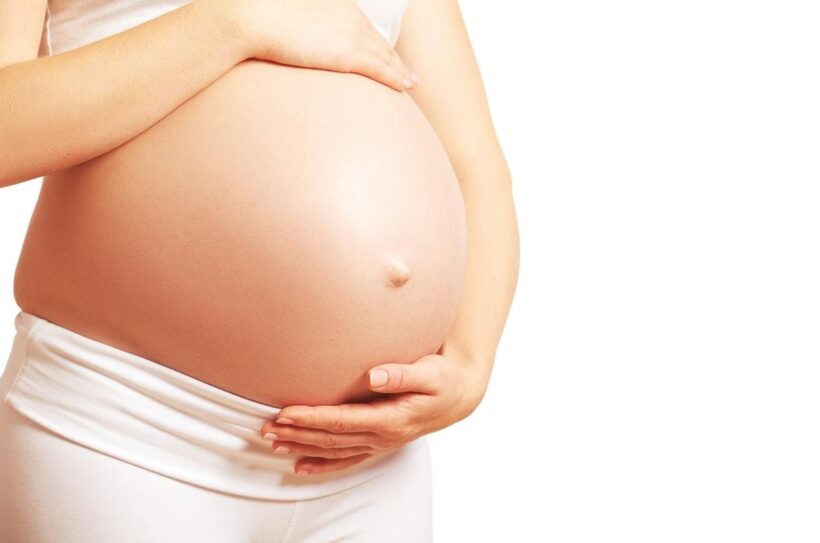7 signs of the 9 months pregnancy
It is no secret, having a baby is many couples’ ultimate wish. As all expectant moms have to face changes during pregnancy, not all women have the same experience. This is all the more true with the ones who have to face a 9 months pregnancy. Below are the 7 common signs to expect during the 9th-month of pregnancy.
What are the symptoms that I am 9 months pregnant?
1. Swollen feet, ankles, and legs
First, most pregnant women experience swollen feet, ankles, and legs. During pregnancy, your body contributes its supply of blood and fluids more than usual. In fact, edema (the excess of fluid in your body’s tissues) will usually occur during the beginning of the third trimester and will get worse as the due date nears.
At this stage, you might get the bad surprise of your good old shoes not fitting your feet anymore. To reduce the swelling, you should drink a lot of water, which will keep your feet hydrated and won’t retain excess fluids. Also, it is recommended you avoid standing for a long time and do soft exercises like walking.
2. Fatigue and exhaustion
Carrying a baby is not easy at all. All moms-to-be experience difficulties moving around due to their burgeoning belly. Sometimes, even picking things on the floor requires too much work! Lying on the bed is probably the only adequate solution when the fatigue is too intense.
Furthermore, since the hormones change extraordinarily, most expecting mamas feel tired all the time. Not only the constant fatigue is something they have to deal with daily, but they may also suffer from many discomforts. Nevertheless, some women regain their energy in the last month of pregnancy, which is considered as a signal that the due date is coming soon.
3. Heartburn
Heartburn, also known as indigestion, is one of the most common symptoms during pregnancy. Even if you have never experienced this problem before, you might have heartburn in the later stage of carrying a baby. This is mainly caused by hormonal changes and the pressure against your stomach while your child is growing. Because of heartburn, you might feel bloated after meals or even random pain in the chest.
If you are suffering from heartburn, you can reduce the pain by changing your eating habits. Avoid fatty and spicy food and have many small meals instead of big ones. It is important to note that indigestion is not a serious health problem and is relatively manageable. Moreover, the pain should be completely gone after giving birth.
4. Stretch Marks
Stretch marks are very common for all mothers-to-be and they often appear in month ninth of pregnancy. As your belly is enlarged, you might notice some pink or purplish lines on your abdomen. Indeed, if you weigh more than the average woman (over 12.5 kg), you might have more streaks than others.
Also, what’s even more annoying, is that stretch marks tend to be very itchy. That said, we recommend not scratching them with your nails, as it will damage your skin for nothing. If you are worried about your stretch marks, know that you can prevent them (partially) of appearing or reduce their visibility with the following tricks below:
- Control your weight
- Drink a lot of water
- Apply oils or rich moisturizing cream on your belly
- Instead of scratching, apply powder or lotions to reduce itchiness.
5. Trouble holding urine
Between 2 or 4 weeks before delivery, your baby will drop down into your lower pelvis, ready for birth. With the new position, you may feel pelvic pressure on your bladder which can cause frequent urination. As a result, you may have to run to the bathroom every 30 minutes. Besides, some women also have problems when laughing or coughing, which can trigger urination.
6. Insomnia
Insomnia is often caused by anxiety, frustration, frequent need to urinate, hormonal changes, baby kicking, and other discomforts from progressively growing your baby belly. Normally, insomnia starts between the second and third trimesters. Mothers-to-be will awake many times at night and always feel uncomfortable in bed.
To overcome the sleeplessness, we suggest you find a comfy pregnancy pillow that can support your bag well. It will help you find the right position and get better sleep. Moreover, you should try to relax before bedtime by clearing your mind. Meditation or writing a diary are both good solutions that have proven themselves.
7. Baby’s movements
During the ninth and tenth months of pregnancy, your lovely baby is progressively developing and moves all the time in the womb. In this period, he/she will move upside down in the ready-to-birth position and there will be less space left as the body gets bigger. You may occasionally feel feet or knee jabs, which is such a happy moment to feel while you are bonding with your unborn child.
Kicking is considered a good sign of being healthy so do not be worried. In general, your little one might kick around 10 times every 2-3 hours. At this stage, you should pay attention to the baby’s movement pattern to ensure that everything is okay. In case there is any irregular movement, please consult a doctor as soon as possible.
Although it seems difficult and uncomfortable, for all expectant women it is a beautiful pain. Therefore, keep a positive mind and take care!

No Comments